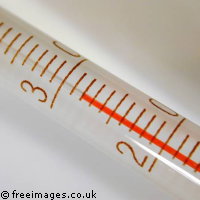Last decade warmest on record, data show
The decade of 1998 to 2007 is the warmest on record, according to new data released by the University of East Anglia (UEA), the Met Office's Hadley Centre and the World Meteorological Organisation (WMO). Meanwhile data from January to November place 2007 as the seventh warmest year since 1850. Earlier in the year, the UK's Met Office and the UEA predicted that 2007 could well be the warmest year on record. Nevertheless, the results so far are within the range of temperatures predicted. 'This year began with a weak El Niño - the warmer relation of La Niña - and global temperatures well above the long term average,' commented Professor Phil Jones of the UEA's Climate Research Unit. 'However, since the end of April the La Niña event has taken some of the heat out of what could have been an even warmer year. '2007 was warmer in the Northern Hemisphere, where the year ranks second warmest, than the Southern Hemisphere, where it ranks ninth warmest.' 2007 was also notable for the low levels of sea ice seen in the Arctic. Sea-ice extent was below average every month of the year, and record lows were reported in July, August and September. For the first time in recorded history, the Canadian Northwest Passage was open for five weeks. Sea levels also continued to rise; satellite measurements show that since 1993 average sea levels have risen by about 3mm per year. Within Europe, the year got off to a windy start when the storm Kyrill swept across large parts of Northern Europe on 17 to 18 January. The torrential rains and winds gusting up to 170km/h caused widespread damage and left at least 47 people dead. The European winter and spring were among the warmest on record, with temperatures some 4°C above the monthly averages for January and April. High temperatures were also a problem in south-eastern Europe in June and July, with daily maximum temperatures reaching 45°C in some places. Dozens died and forest fires devastated thousands of hectares of land. At the same time, the north of Europe was experiencing wet weather. England and Wales recorded their wettest May-July period since records began in 1766, and extensive flooding killed nine and caused more than €4 billion in damage. Dr Vicky Pope of the Hadley Centre is in Bali, Indonesia, attending the UN Climate Conference. 'The last few days have provided an important platform for debate and confirm the need for swift action to combat further rises in global temperatures because of human behaviour,' she said. At the start of the Bali conference, over 200 scientists called on the policy makers at the event to act immediately to cut greenhouse gases. The signatories warn that unless action is taken, millions of people will be at risk of extreme events such as heat waves, droughts, floods and storms. The data in the latest report comes from networks of land-based weather stations, ships and buoys at sea and satellites. The data are collected by the National Meteorological and Hydrological Services of the WMO's members. Final figures for 2007 will be published in March 2008.
Countries
United Kingdom



